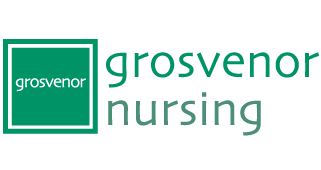Guidance for staff intending to travel to, or returning from, Ebola affected countries
The on-going outbreak of Ebola in West Africa, primarily affecting Guinea, Liberia and Sierra Leone has been declared a Public Health Emergency of International Concern by the World Health Organization. This is the largest outbreak of this disease to ever happen.
Ebola is a severe and life threatening viral disease caused by the Ebola virus. The onset of illness is sudden, with fever, headache, joint and muscle pain, sore throat and intense weakness. This is then followed by diarrhea, vomiting, rash, impaired kidney and liver function and stomach pain. Some patients may develop a rash, red eyes, hiccups, internal and external bleeding.
Ebola hemorrhagic fever is fatal in between 50 to 90% of all clinically ill cases. Ebola is spread through direct contact with blood and body fluids from infected people. The incubation period ranges from 2 to 21 days. Anyone who has close contact with a person infected with the virus, or someone who handles samples from patients are at risk. This includes hospital staff, family members and laboratory workers, all of whom are at risk if they do not use appropriate protective equipment / barrier nursing techniques. These precautions include wearing protective gowns, gloves, and masks, in addition to wearing eye protection (e.g. eye goggles) or a face shield.
The government advises against all but essential travel to Liberia, Sierra Leone and Guinea except for those involved in the direct response to the Ebola outbreak. It remains unlikely but not impossible that travellers infected in one of the affected countries could arrive in the UK while incubating the disease and develop symptoms after their return. Although the likelihood of imported cases is very low, travellers returning to the UK from the affected areas, particularly those who have been involved in health care overseas, need to remain vigilant.
For staff who are planning to visit Ebola affected countries:
The agency requests that staff follow FCO advice and do not place themselves at risk of infection. The agency recognises that some staff may have family in one of the affected countries but it does not consider essential travel to include, for example, visiting family at Christmas. If staff choose not to follow the FCO advice and travel to one of the affected countries, this may then result in work restrictions and / or exclusion upon return as noted in the scenarios below.
All staff who travel to one of the Ebola affected countries (Guinea, Liberia and Sierra Leone) irrespective of the reason for travel (personal or work related) must contact the agency prior to leaving the UK and on return to the UK, prior to their return to work.
Existing staff who have visited Ebola affected countries - this will mainly apply to those who have visited affected countries for the purpose of charity and/or healthcare work.
If no healthcare work was undertaken whilst in one of the Ebola affected countries, and staff had no direct contact with a known or suspected Ebola, including attending a funeral, staff should:
- Inform the agency prior to departure
- Monitor their health / temperature for 21 days from leaving the affected country
- If the staff member becomes unwell with symptoms such as fever, chills, muscle aches, headache, nausea, vomiting, diarrhea, sore throat or rash within 21 days of coming back from Guinea, Liberia or Sierra Leone, they should stay at home and immediately telephone 111 or 999 and explain that they have recently visited West Africa. These services will initiate the appropriate care pathway
- They must keep in touch with the agency prior to return to work
- Staff member will be able to return to work after 21 days
If healthcare work was undertaken abroad or the staff member had direct contact with an Ebola case e.g. routine medical / nursing care but wore appropriate protective clothing with no known breaches in the personal protective equipment (PPE), the staff member should:
- Inform the agency prior to departure
- Check temperature twice daily for 21 days after return and report any raised temperature or other suspicious symptoms to the monitoring team at Public Health England (PHE)
- Must provide Occupational Health with documentary evidence from their Voluntary Aid agency / affiliated health care institution who organised the overseas placement outlining the extent of their exposure and specific detail regarding the PPE used
- Contact the agency prior to return to work
- Staff member will be able to return to work after 21 days and monitoring completed
If healthcare work was undertaken abroad or the staff member had direct contact with an Ebola case and may have had unprotected exposure of skin or mucous membranes to potentially infectious blood or body fluids, including on clothing or bedding, for example:
- Unprotected handling of clinical/lab specimens
- Mucosal exposure to splashes
- Needlestick injury
- Kissing and / or sexual contact
The staff member should:
- Inform the agency prior to departure
- Check temperature twice daily for 21 days after return and REPORT DAILY to the
- Monitoring Team at Public Health England (PHE) even if the temperature is normal and the staff member is not experiencing any suspicious symptoms
Staff member will be able to return to work after 21 days and monitoring is completed.
For more information about the Ebola virus disease, see:
Government UK
NHS Choices: Ebola and Overview
Ebola virus disease: clinical management and guidance
Ebola virus disease: information for humanitarian aid workers
